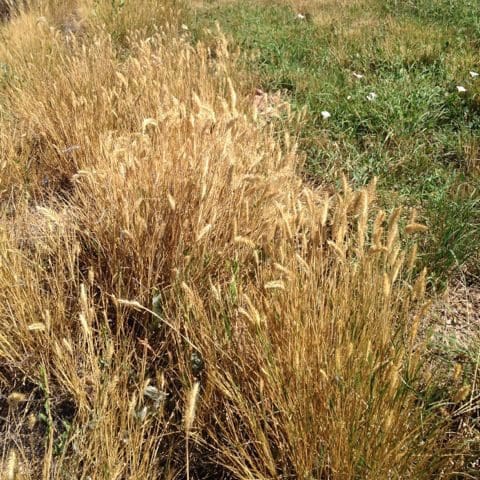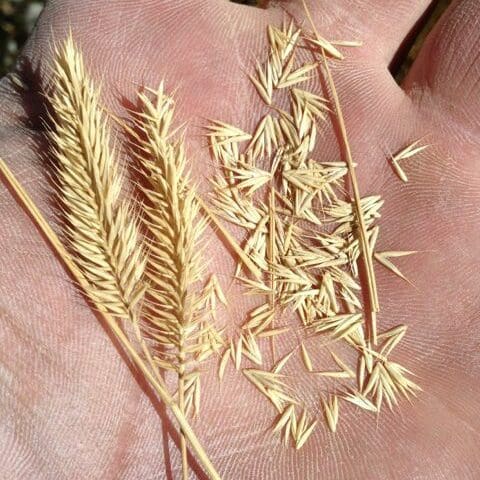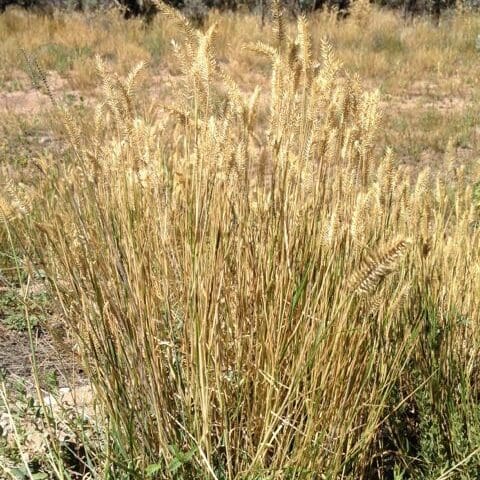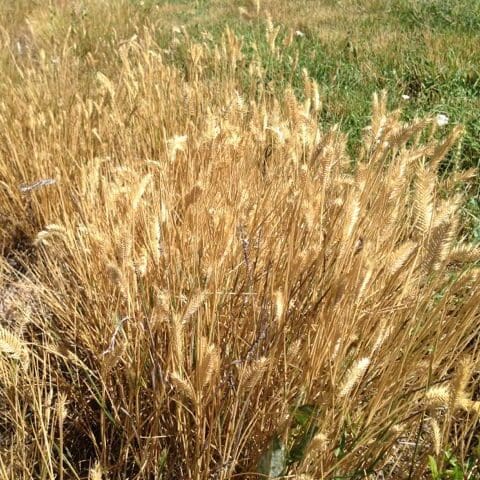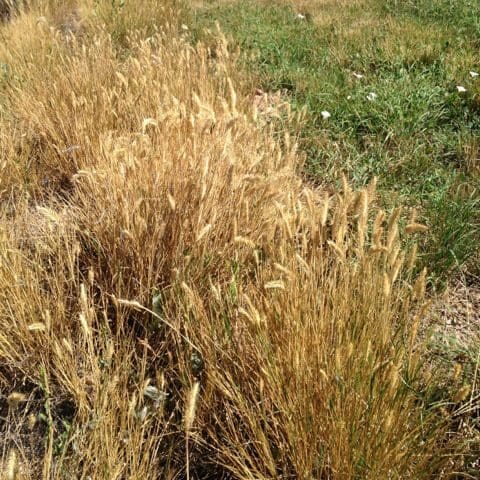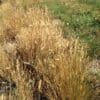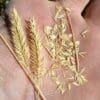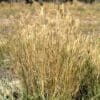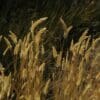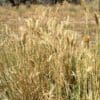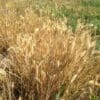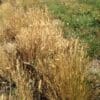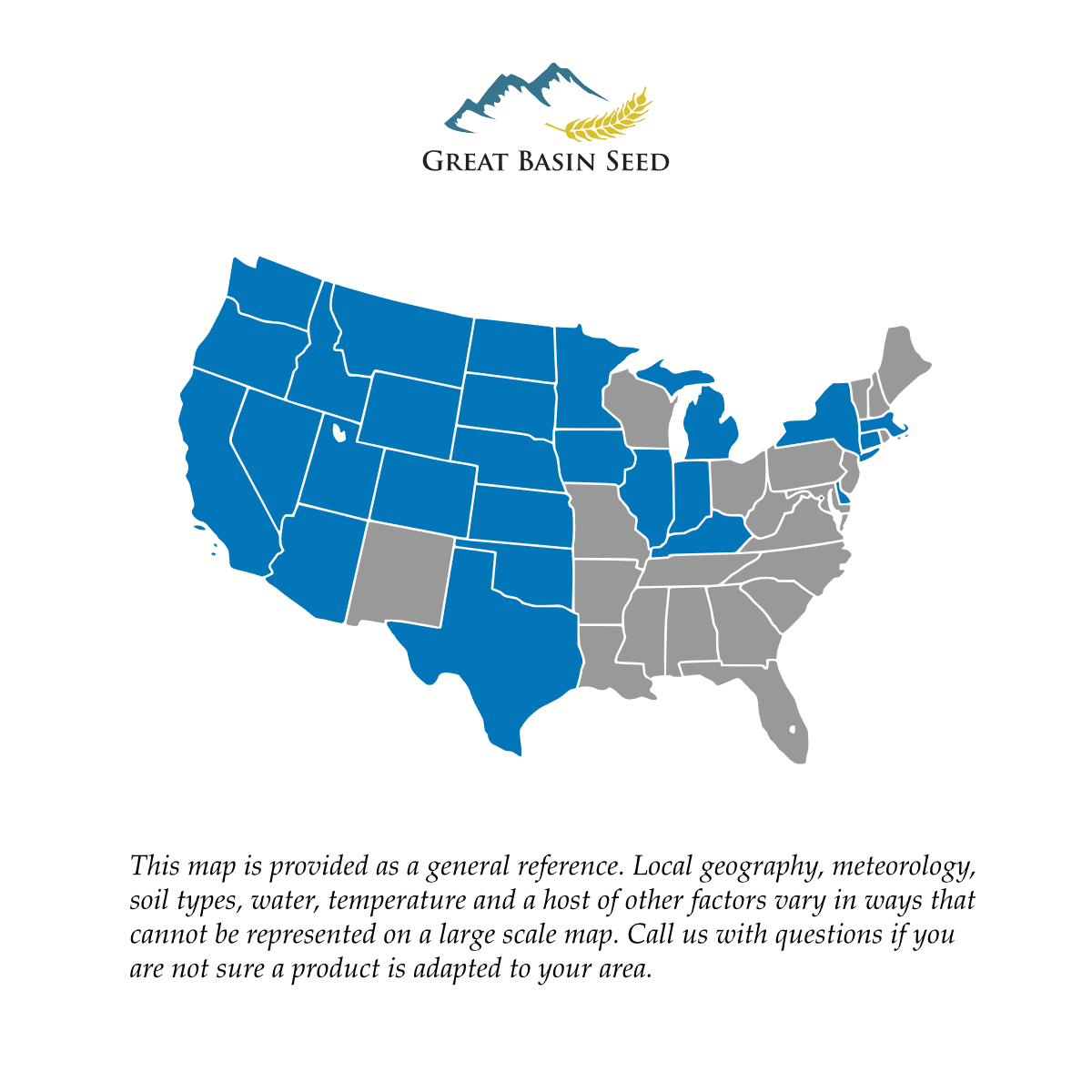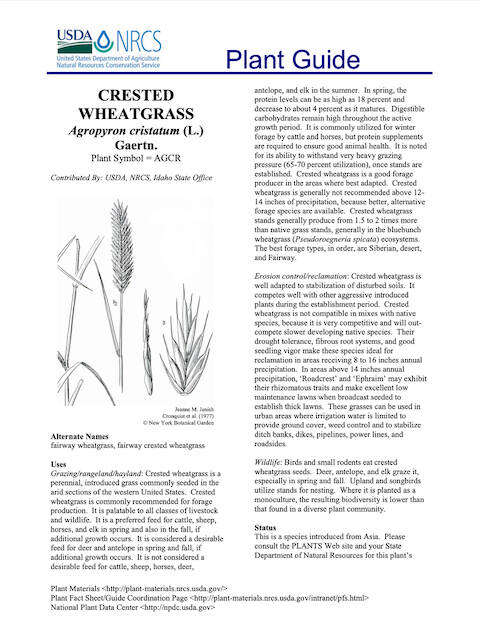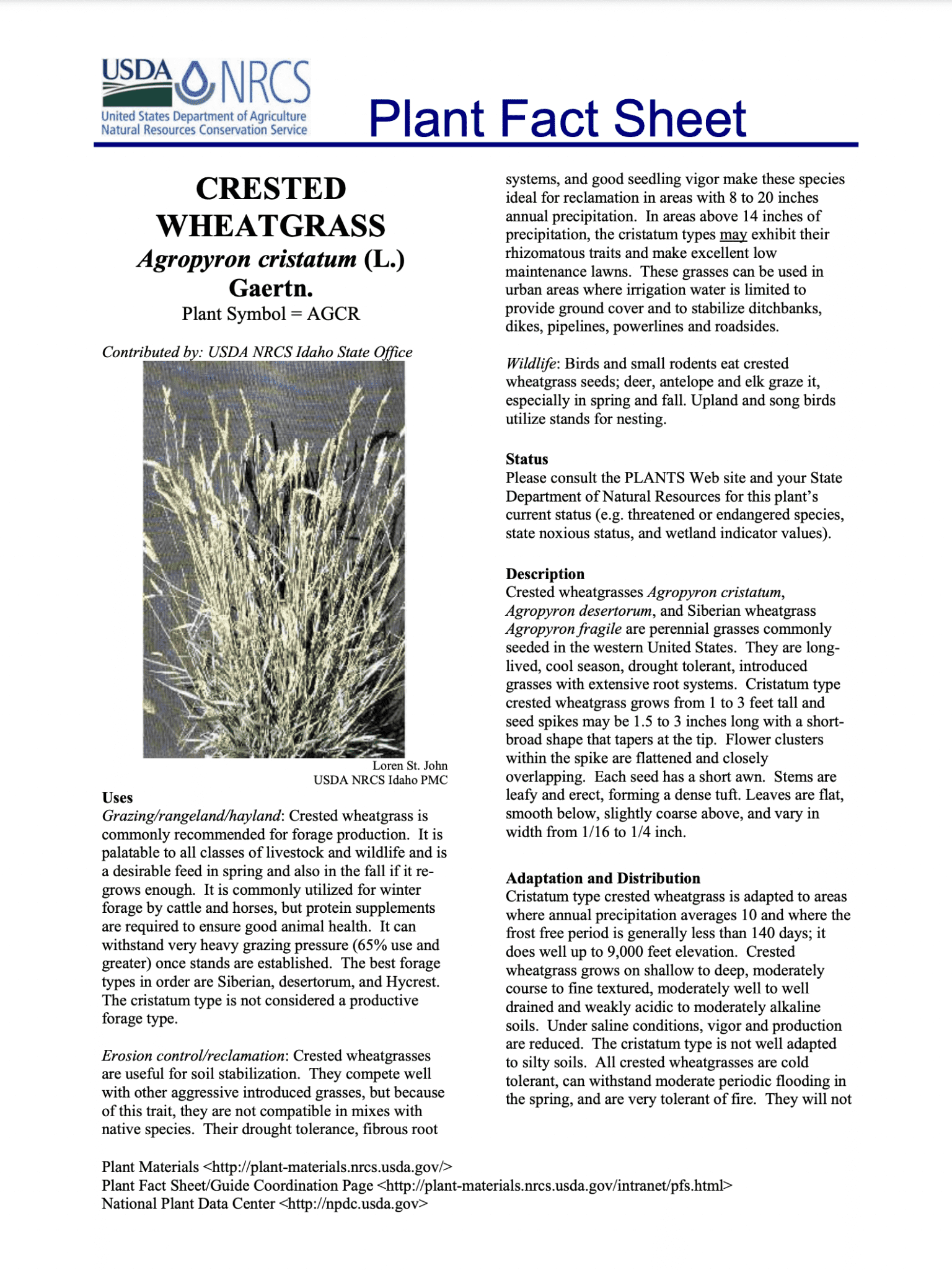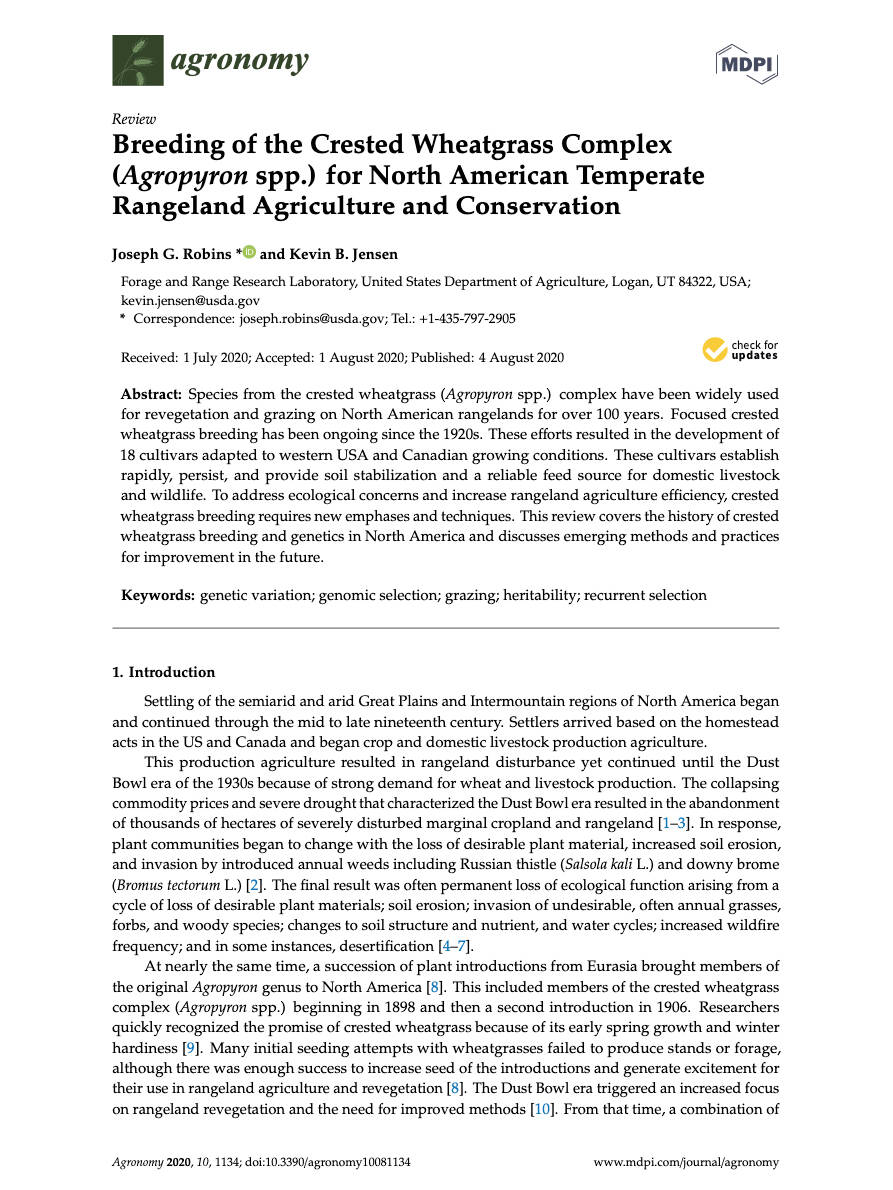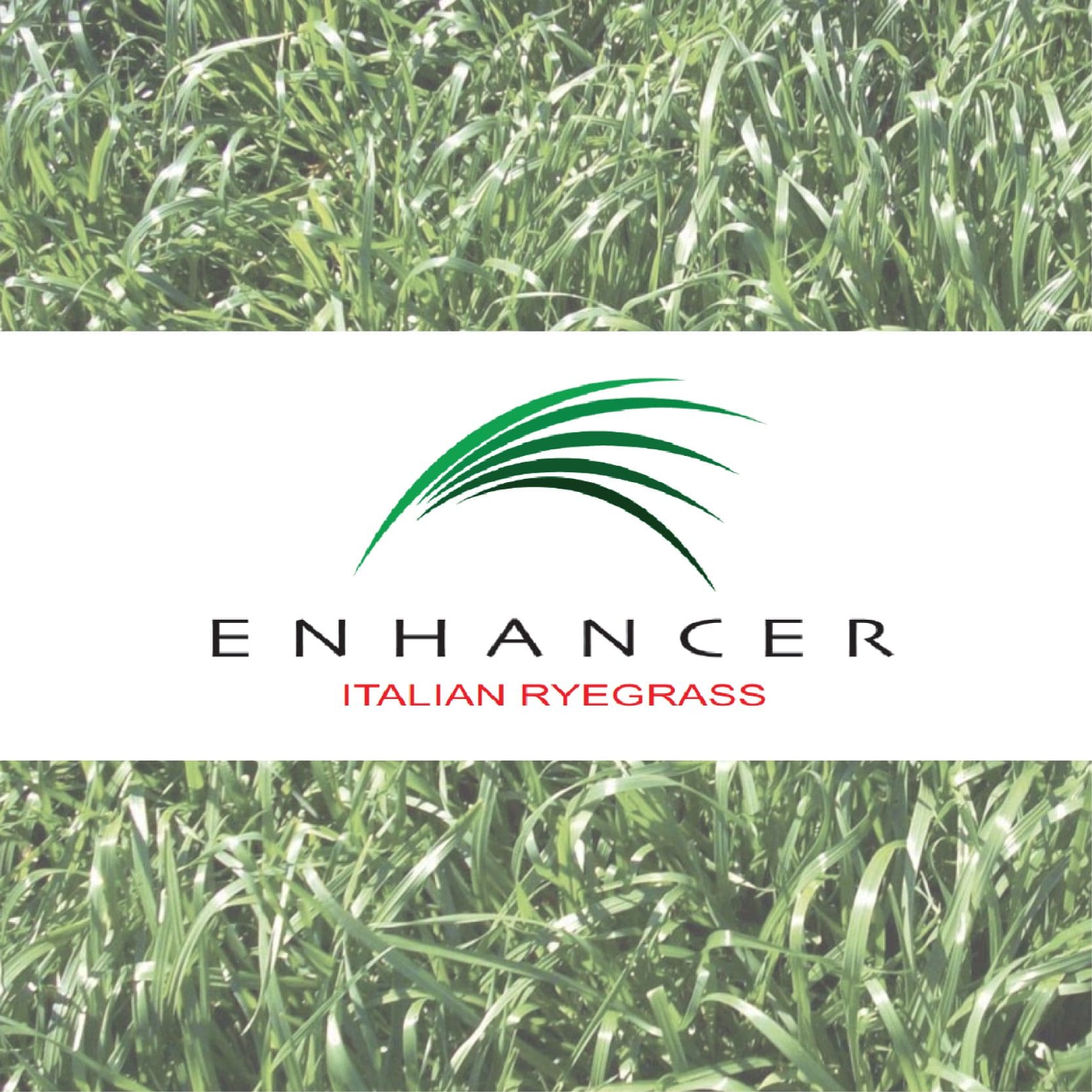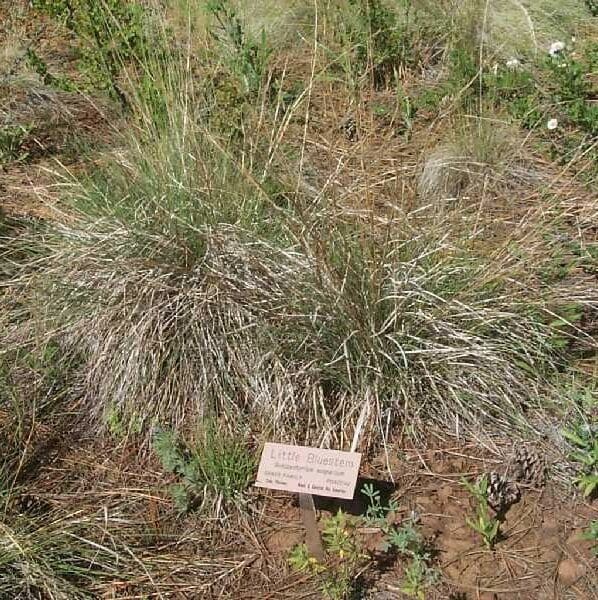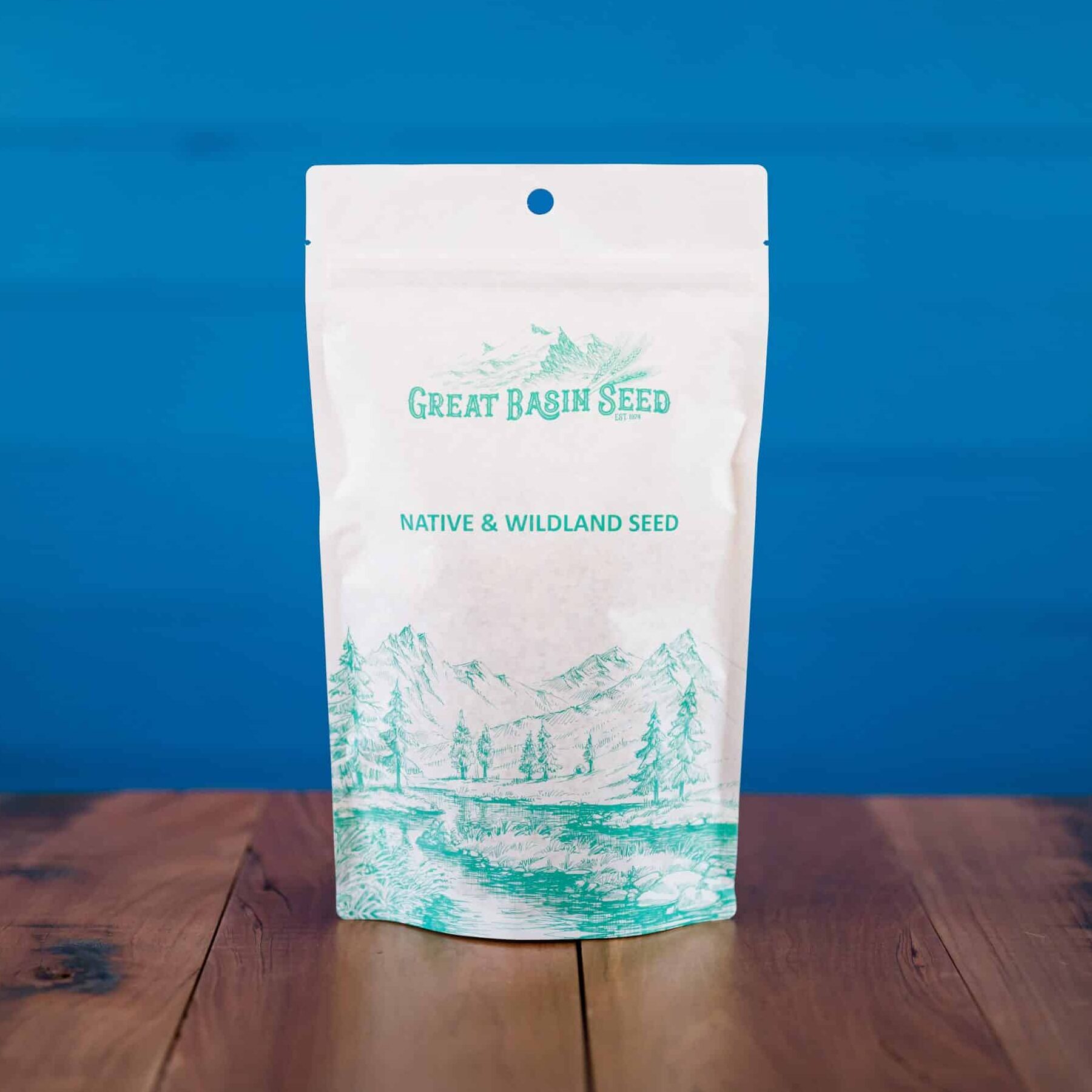Crested Wheatgrass
- Scientific name: Agropyron cristatum
- Long-lived with a deep root system
- Ease of establishment, longevity and broad value
- Popular for reclamation, stabilization and erosion control
- minimum order quantity of 3 pounds
Min. to Max. Annual Precipitation
32in.
Average Max. Height
A cool season perennial bunchgrass. Long-lived with a deep root system. It has good seedling vigor. Can be found on most rangelands of the intermountain west. Adapted from 2,500-9,000 feet, though it performs best between 4-6,000. Requires a minimum of 10″ annual precipitation. Very popular in dryland situations.
Crested Wheatgrass (Agropyron cristatum) was introduced from Russia, Siberia and Turkey, perhaps as early as 1898. It is a cool season perennial bunchgrass, without rhizomes, growing to a height of 1 to 2 feet. It starts growth in early spring and flowers in late spring. It reproduces from seeds and tillers and may regrow in the fall if moisture is sufficient. It is long-lived with a deep root system. It has good seedling vigor. Crested Wheatgrass has long been a favorite item for dryland pastures and is a foundational component for most dryland and reclamation mixes.
Crested Wheatgrass can be found on most rangelands of the intermountain west. It is adapted from 2,500-9,000 feet, though it performs best between 4-6,000. It prefers well drained soils, it is not adapted to poorly-drained soils or heavy clay soils. It requires a minimum of 10″ annual precipitation. It has fair tolerance to alkali and acidity.
Crested Wheatgrass produces fair forage. As the grass matures is becomes harsh and protein content drops rapidly. It does, however, yield well and is highly palatable in the spring. It is used extensively for reclamation, stabilization and erosion control. It is a primary component of our Dryland Pasture Mix. Because of ease of establishment, longevity and broad value it is planted more frequently in the intermountain west and desert southwest than any other grass species for dryland pasture, reclamation and stabilization.
Crested Wheatgrass Varieties
Agropyron cristatum should not be confused with Agropyron desertorum, though the two are closely related. Hycrest is a hybrid between A. cristatum and A. desertorum.
There are a number of crested wheatgrass varieties. Use the downloadable documents to help you make the choice most appropriate for your needs.
- Fairway: introduced/released 1983, from Ankara Turkey. Fairway’s rhizomatous growth habit make it well suited for soil stabilization.
- Ephraim: released in 1994, a hybrid of four accessions. Quality forage value, high seedling vigor.
- Roadcrest: shorter, finer leaf texture that other varieties. Used for roadside reclamation and low maintenance turf areas. More sod forming and less clumpy than other crested wheat grasses.
- Kirk: introduced/released from Siberia in 1297. Short and fine-stemmed. Capable of forming sod in dryland areas.
- Douglas: Produces less forage but is leafier than other varieties and stays green longer.
- Hycrest: is a hybrid between Agropyron cristatum and Agropyron desertorum. It is easier to establish than wither of it’s parents.
For additional information see the USDA PLANTS database.
***click on the “Quick Plant Facts” tab for more seed facts.
| Common Name & Variety | Scientific Name |
|---|---|
| Crested Wheatgrass | Agropyron cristatum |
| Douglas | Agropyron cristatum var. douglas |
| Ephraim | Agropyron cristatum var. ephraim |
| Roadcrest | Agropyron cristatum var. roadcrest |
| Parkway | Agropyron cristatum var. parkway |
| Ruff | Agropyron cristatum var. ruff |
| Desert or Standard Crested Wheatgrass | Agropyron desertorum |
| Nordan | Agropyron desertorum var. nordan |
| Summit | Agropyron desertorum var. summit |
| Siberian Wheatgrass | Agropyron fragile |
| Vavilov | Agropyron fragile var. vavilov |
| Vavilov II | Agropyron fragile var. vavilov II |
| P-27 | Agropyron fragile var. P-27 |
| Hybrid Crested/Desert Wheatgrass | Agropyron cristatum X Agropyron desertorum |
| Hycrest | Agropyron cristatum X Agropyron desertorum var. Hycrest |
| Hycrest II | Agropyron cristatum X Agropyron desertorum var. Hycrest II |
| CD II | Agropyron cristatum X Agropyron desertorum var. CD II |
Crested Wheatgrass NRCS Plant Guide
Crested Wheatgrass NRCS Plant Guide
PDF version of NRCS Plant Guide & Fact Sheet
Prepared By & Species Coordinator Daniel G. Ogle, USDA NRCS Idaho State Office, Boise, Idaho.
Crested Wheatgrass NRCS Fact Sheet
Crested Wheatgrass NRCS Fact Sheet
PDF version of NRCS Plant Guide & Fact Sheet
Prepared By & Species Coordinator: Dan Ogle, Plant Materials Specialist USDA NRCS Idaho State Office, Boise, Idaho
Breeding of the Crested Wheatgrass Complex (Agropyron spp.) for North American Temperate Rangeland Agriculture and Conservation
Breeding of the Crested Wheatgrass Complex (Agropyron spp.) for North American Temperate Rangeland Agriculture and Conservation
Joseph G. Robins and Kevin B. Jensen
Forage and Range Research Laboratory, United States Department of Agriculture, Logan, UT
Helpful Links
Additional information about this product can be found on the academic websites linked below.
Synonyms
Many plants have more than one common and scientific name. We've listed a few of them below.
- Crested Wheatgrass
- Agropyron cristatum
Who is Great Basin Seed?
Great Basin Seed is a seed company that specializes in seed sales and consultation for home, ranch, farm, range and reclamation. We have been a leader in the seed industry since 1974.
Our History
We've been in the seed business since 1974.
What We Offer
We offer seed for home, farm, ranch, range and reclamation projects.
Meet the Gang
We have the best employees in the world! We are proud of the work they do, and trust them to serve you!
Right: Company founder Lloyd and his wife Paula Stevens in a wildflower seed production field circa 1977
Quick Plant Facts
| Common Name: | Crested Wheatgrass |
|---|---|
| Scientific Name: | |
| Lifespan: | |
| Origin: | |
| Plant Type: | |
| Seeds per Pound: | |
| Growth Height: | |
| Root Form | Bunchgrass |
| Sowing Rate | 3-7 PLS lbs. per Acre |
| Min. Precipitation | 9-10 Inches Minimum |
| Best Time to Sow: | |
| Max Sowing Depth: | |
| Growth Season: | |
| Available Varieties: | |
| Blogpost | https://greatbasinseeds.com/crested-wheatgrass-for-reclamation/ |
| Hardiness Zones: |
